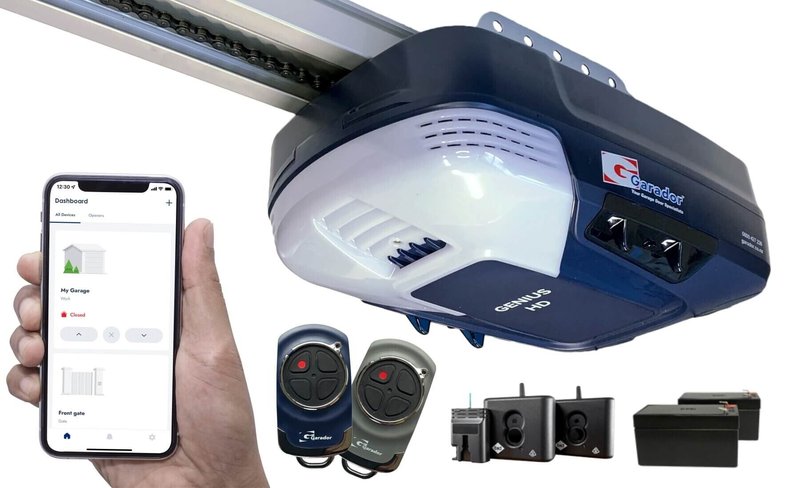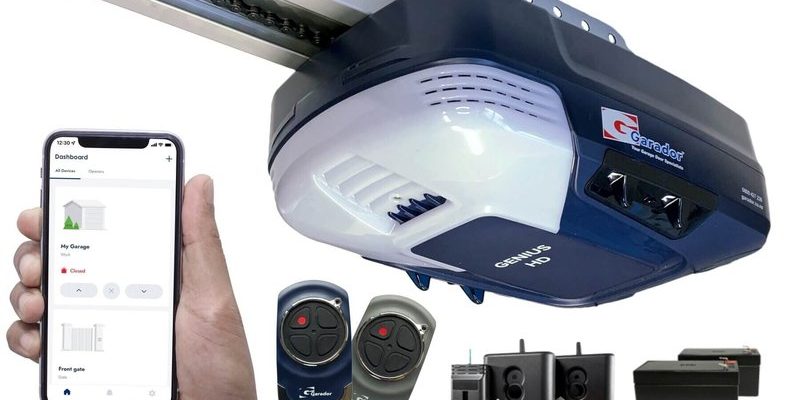
Imagine you’re sifting through various brands, like LiftMaster or Chamberlain. You’ll find models with two-year warranties and others with a lifetime guarantee. But what’s the difference? What do you get for that extra coverage? In this guide, we’ll dive into the different warranty lengths offered by garage door openers to help you make an informed decision.
Understanding Garage Door Opener Warranties
Before we tackle the specifics, it’s essential to understand what a warranty is. Essentially, a warranty is a seller’s promise to repair or replace a product if it fails to meet certain standards. It’ll generally cover parts and sometimes labor, giving you a cushion if something goes wrong.
1. Types of Warranties
– Limited Warranty: This is the most common type. It covers specific parts for a particular timeframe but may exclude wear and tear. So, if you have issues with something like the motor down the line, you’re likely out of luck.
– Full Warranty: This usually covers all parts for the stated period with no restrictions on wear. But beware; some full warranties can have specific conditions you must meet.
2. What’s Covered?
– Different brands offer varying levels of coverage. You might find warranties covering the motor, circuit board, and even the remote control. It’s always a good idea to read the fine print. Some warranties exclude parts based on usage or age.
3. Transferability
– Some warranties allow transfer to a new owner, adding value to your home if you decide to sell. Be sure to check if it’s a selling point for the opener you have in mind.
Factors Affecting Warranty Length
You might be wondering why some brands offer longer warranties. Here are a few factors that influence warranty durations:
1. Brand Reputation
– Established brands like LiftMaster are known for their durability and performance, often offering longer warranties. They can afford to back their products because they trust their engineering and design.
2. Quality of Components
– If a garage door opener is built with higher-quality materials, expect a more generous warranty. Cheaper models might use plastic parts rather than metal, making them less durable.
3. Consumer Behavior
– Companies know that if their product performs well and meets high consumer expectations, they can afford longer warranties. You may notice that more premium options generally provide better warranties.
Comparison Table of Warranty Lengths
Here’s a handy comparison table showing the warranty lengths across various popular brands:
| Brand | Model | Warranty Length | Covered Parts |
|---|---|---|---|
| LiftMaster | 8550W | Lifetime on Motor, 5 Years on Parts | Motor, Circuit Board, Remote |
| Chamberlain | WD1000WF | 1 Year on the entire opener | All Parts |
| Wayne Dalton | HD100 | 5 Years | Motor and Drive System |
| Genie | SilentMax 1200 | 1 Year on Whole Opener | All Parts |
What to Expect from Shorter Warranties
You might find a shiny, cheap garage door opener that comes with a short warranty—like one or two years. Here’s what you can expect:
1. Less Confidence: A shorter warranty often means the manufacturer is less confident in the product’s longevity. This can be a red flag, especially if you plan to use the opener regularly.
2. Higher Out-of-Pocket Costs: With a shorter warranty, if something goes wrong, you’ll likely foot the bill for repairs. This can be annoying, especially when a simple hiccup could end up costing you more than the opener itself.
3. Limited Coverage: Often, shorter warranties will have more exclusions. For example, if you’re a heavy-user or your garage has extreme temperatures, a short warranty might not cover those situations.
Benefits of Longer Warranties
Now, let’s flip the coin. What advantages come with longer warranties?
1. Peace of Mind: It feels good knowing the company has your back for several years. If your opener has a lifetime warranty on the motor, you can rest easy knowing it’s protected.
2. Quality Assurance: Longer warranties tend to mean better-built products. Manufacturers believe in their designs and quality, allowing them to extend coverage.
3. Potential Resale Value: If you’re ever selling your home, having a garage door opener with a solid warranty can be a selling point. Buyers appreciate the added security.
What Happens After the Warranty Expires?
Once your warranty period ends, it’s not the end of the road. Here’s what you need to know:
1. Maintenance is Key: Regular maintenance can keep your opener working smoothly. Lubricate moving parts, check wiring, and clean sensors to prolong its lifespan.
2. Consider Service Plans: Some companies offer extended service plans that can cover repairs after the warranty period expires. It might be worth considering if your opener is a high-end model.
3. DIY Fixes: If you find yourself needing repairs, do some research online first. Many common issues can be solved without calling in a professional. For example, troubleshooting syncing issues with the remote might just require a simple battery change.
Common Issues Covered by Warranties
Most warranties cover specific parts, but what about common problems? Here’s a quick list:
1. Remote Control Issues: Many warranties cover faulty remotes but may limit coverage duration. If your remote dies after a year, you may need to buy a new one.
2. Motor Failure: This is critical. When you invest in an opener, ensure the motor has solid coverage. If it fails, you want to be sure you’re not paying out of pocket.
3. Sensor Failures: If your garage door doesn’t close properly, faulty sensors can be to blame. Good warranties will often cover these vital components.
Choosing the Right Opener Based on Warranty
So, how do you use warranties to guide your purchase? Here are some tips:
1. Match Usage to Warranty: If you use your garage daily, go for a model with a longer warranty. It’ll give your investment better longevity and security.
2. Research Customer Reviews: Check reviews to see if people have enjoyed good experiences with the warranty service. A great warranty means nothing if customer service is slow.
3. Look for Comprehensive Coverage: Find an opener that covers not just the motor but the entire unit. Full coverage can save you additional hassle down the line.
When choosing a garage door opener, don’t just focus on price and features—dive into those warranty lengths. A warranty isn’t just a safety net; it’s an indicator of the manufacturer’s confidence in their product. Whether you’re considering a LiftMaster with a lifetime motor warranty or a budget opener with a one-year cover, weigh the pros and cons carefully.
At the end of the day, investing in a garage door opener with a solid warranty can save you stress and money. After all, you want to feel secure every time you hit that remote. Happy shopping!
